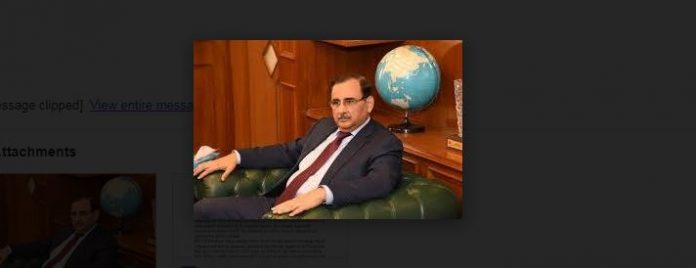DNA
KARACHI, SEPT 12 – The Federation of Pakistan Chambers of Commerce and Industry, opposing the ECC decision of raising power tariff for export sector from Sept by 1.5 cents amidst downfall of 20 percent exports, has sought regionally competitive energy tariffs for domestic as well as export industries to capture the global market.
FPCCI President Mian Anjum Nisar observed that amid worsening export volumes and halt in domestic industrial growth the approval of 20 percent hike in electricity rates to 9 US cents per kWh for the export sector from Sept 2020 is really surprising and if it is not reversed, it would prove to be dangerous for Pakistan’s industry, discouraging investment both in capacity as well as the capability..
While the domestic industry has already been paying Rs19.82 per unit of electricity the export-oriented industry has now been forced to pay a cost of Rs15 per unit from Sept, which is more than the double of the electricity rates in India, which will pull them out of the international market by the regional competitors. The electricity charges in Bangladesh and India are about 7-9 cents per kWh while in China, which is Pakistan’s major trading partner, the electricity charges are less than 9 cents per kWh.
FPCCI President said that though the move will help the government restrict subsidies to Rs20 billion this year yet it will put an additional burden of nearly Rs18 billion on the industrial sectors.
“It is good that for two months of July and August electricity to the export-oriented sectors would be provided at 7.5 US cents but after that power would be supplied at 9 US cents per kWh for the rest of the financial year 2020-21 at a time when the export sector has already shown plunge of around 20 percent. Exports have been struggling for the past many years. In the first two months of July-Aug of the current fiscal year the exports further fell by over 4 percent. The government had announced an all-inclusive tariff of 7.5 US cents per unit for five major export sectors in Jan 2019 to enhance Pakistan’s export competitiveness but the decision was not implemented in its full spirit.
Mian Anjum Nisar also stressed the need for early approval of new Textile Policy 2020-25 by the Economic Coordination Committee, as it would be beneficial for the major export sectors. He said that Prime Minister Imran Khan has already accorded approval to this Policy in terms of policy directives on production and diversification of exports. He added that the approval of textile policy is the only way to ensure more investment in this sector as huge investment is in the pipeline but is awaiting the last accord of textile policy.
He welcomed the country’s some positive economic indicators, which have started showing recovery despite enormous challenges at external as well as internal fronts due to outbreak of coronavirus and subsequent lockdown,
FPCCI President said that both International and domestic confidence was increasing. In addition, the Moody’s rating agency also provided stable rating for Pakistan economy and confirmed its B3 credit rating. It is fact that the COVID-19 outbreak and the subsequent lockdown drastically damaged the world economy and Pakistan was no exception which witnessed negative GDP growth. However, due to some better policies adopted by the government, including relief in markup rate the economic losses were mitigated to some extent, which now need to continue for further benefit.
Mian Anjum Nisair called for continuation and consistency in long-term policies once it is announced, as changes and revisions hurt the industrialists’ plan of production and purchases and booking of orders which is made according to the policy announcement.
Mian Anjum Nisar observed that country has not been able to achieve its full export potential and product diversification owing to limited access to raw-material and to this effect the application procedures for temporary import schemes should be simplified, so that exporters could be able to achieve price competitiveness and product diversification. He said that industry was assured that sales tax refunds under the FASTER system will be paid in 72 hours. However, the system has completely failed and billions of rupees of refunds are stuck in the system.
















